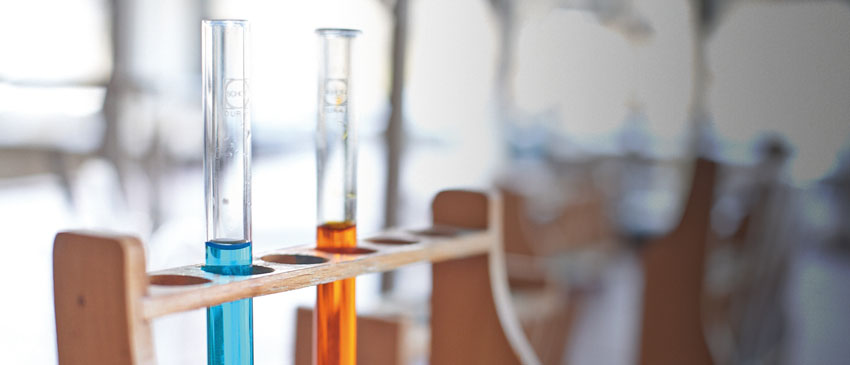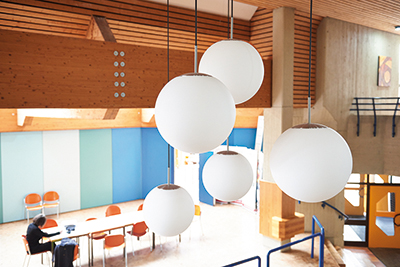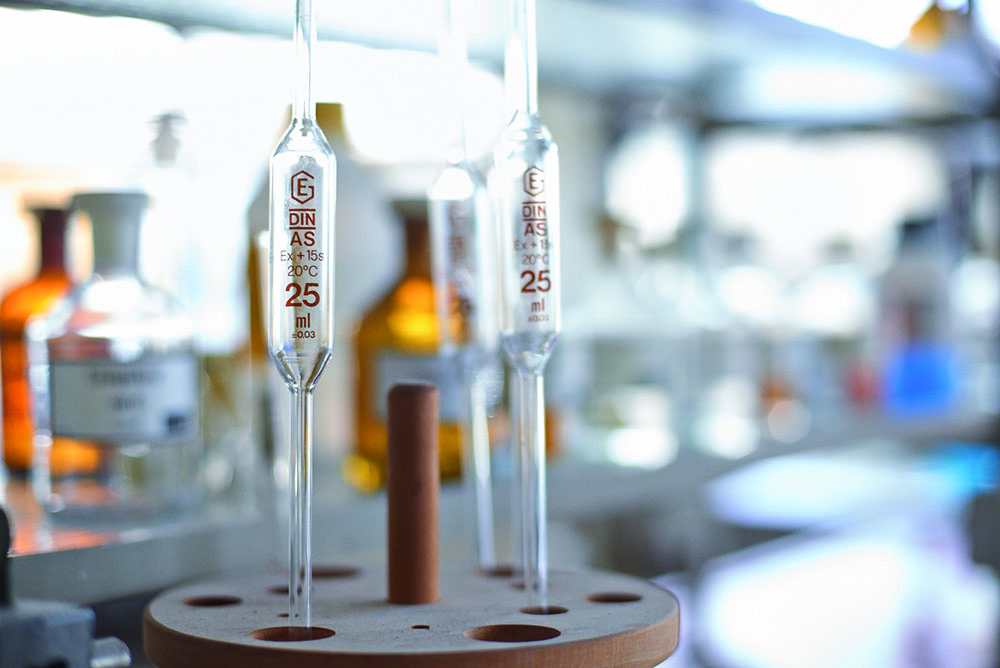What does an education at the State Technical College offer you?
The focus is on your career prospects. Therefore, during your further education as a future ceramic engineer, you will acquire abilities and skills for planning, processing and evaluation of extensive expert tasks and problems as well as process management in ceramic fields of activity.
You will be dealing with fundamental ceramic topics, such as raw and basic materials, forming processes, drying and firing as well as glaze. In optional modules, you can set your own personal focus, e.g. on abrasives, refractories, technical ceramics and enamels. Necessary scientific competences will be widely developed within ceramic issues. Modern equipped laboratories and workshops offer you the opportunity to discover genuine ceramic methods, work and analysis techniques and therefore the behaviour of ceramic materials in a practical way.
You will also develop interdisciplinary competences in the context of management, business administration, communication, work techniques as well as communication in a foreign language within your vocational further education.
We will support you individually from the first day to your final project, and wherever possible we will accompany your educational processes in small working groups. Thus, your training as a State Certified Ceramic Engineer will offer you wide-ranging professional prospects in ceramics.
How does your education work?
The modern education concept is modular. Thematically consistent learning modules with a length of some six weeks facilitate focusing on the relevant ceramic issues and the professional competences to be developed by a ceramic engineer. The division into mandatory and optional modules makes it possible for you to set your own individual focus according to your interests or the requirements of your company to a large extent. You will end your further education with a final project, which is mostly carried out in cooperation with a ceramic company, thus stressing the close relationship between your education and the college as a whole and the industry.
Our course of studies ranks among the vocational further education offers and conforms with the holiday regulation of schools in the federal land of Rhineland Palatinate.
Do you prefer a full-time or a career-integrated part-time education?
Your further education generally takes two years, if you attend full time. The modular organisation is also ideally suited for a career-integrated part-time education, in which you merely have to attend a defined, self-planned number of modules per year. You can then graduate as a State Certified Ceramic Engineer within up to five years. Generally, your overtime claims, holiday entitlements and unpaid leave can be used for your tuition. Many companies have now decided to secure their own demand in skilled staff by supporting their employees’ further education both financially and timewise. The career-integrated part-time education has turned out to be the most favoured option.
The college is happy to advise you on your options.
What benefits does your education provide for you?
As a State Certified Ceramic Engineer, you can find occupation in all areas of the ceramic industry.
Whether as a manager of a production section or a laboratory, as a QM representative, as a production developer or an application engineer, or possibly even as a colleague in a research project or a technical salesperson – as far as our experience goes, graduates from our college are versatile. In any case, you will take over professional responsibility for extensive tasks and problems in your ceramic field.
Within the scope of your education, you can acquire your AdA-certificate (instructor’s qualification) with additional examinations. This, according to the Trainer Certification Regulation, will enable you to be the responsible instructor for trainees in your company.
Furthermore, with your graduation as a State Certified Ceramic Engineer, you will obtain the qualification for further studies at related universities in Rhineland Palatinate, typically the University of Applied Sciences in Koblenz, with its faculty “Materials Engineering Glass and Ceramics” at the WesterWaldCampus, where you can complete a bachelor programme.


